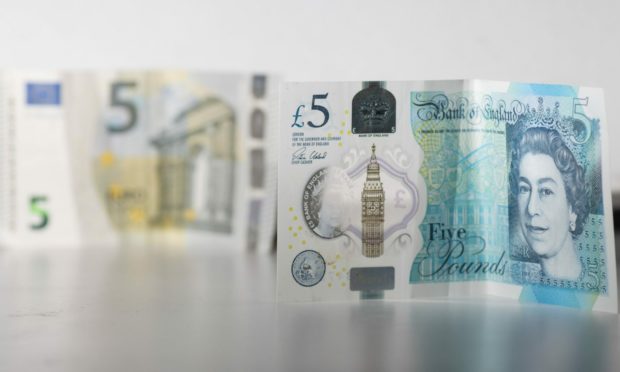Retail sales in the UK were healthier than expected in June as football fans splashed out and treated themselves to food and drink to watch the Euros.
However, the UK economy has since weakened, having suffered a sharp slowdown in growth so far this month, with staff and raw material shortages to blame, according to a new survey.
This mixed picture – of rising demand combined with shortages and slowed economic growth – is underpinning worries over whether or not inflation will remain in check.
The Office for National Statistics (ONS) revealed that retail sales volumes increased by 0.5% in June.
It came after a surprise dip in retail sales in the previous month, while the latest figures also surpassed the expectations of analysts who had forecast a flat performance.
The ONS also said June’s figures represented a 9.5% increase in retail sales volumes against pre-pandemic levels from February 2020.
But latest figures show that non-food stores still saw lower sales, with a 1.7% decrease in June against May’s performance.
Against these signs of confidence, the closely-followed IHS Markit/CIPS composite output index, which measures different parts of the economy, hit 57.7, down from 62.2 in June to levels not seen since before lockdown restrictions started to ease.
Business outlook lowest in nine months
Concerns about the loss of momentum also led to the lowest degree of optimism towards the business outlook for nine months, with companies struggling to manage large parts of the workforce off due to being told to self-isolate.
Around 32% of those surveyed said they had seen a rise in business activity during July, compared to 16% that signalled a decline, with looser restrictions, a boost in consumer spending due to greater numbers of “staycations” and a strong order book in the manufacturing sector.
The pace of the rise in levels of new work was the slowest in the current five-month period of expansion, with some firms citing a drop in business and consumer confidence due to the pandemic situation, while others continued to report Brexit-related difficulties with export sales.
Inflationary pressure is growing
Manufacturers in particular said rising raw material costs, Brexit border checks and increased delays in global shipping was playing a part in the slowdown.
While current staff absences continue to cause problems, there were also issues with recruitment, with employment growth reducing to its slowest rate since March.
Large number of staff departures and a lack of candidates to fill roles was highlighted by the survey.
Inflationary pressures are also growing, with wage inflation, higher transport bills and price hikes by suppliers all impacting the economy.
Save or spend?
Kevin Brown, savings specialist at Scottish Friendly, said: “Households are still embracing the opportunity to spend more freely post-lockdown and need little invitation to enjoy some of the extra cash they may have set aside.
“The Euros have contributed to buoyant food store sales which had seen a significant drop off in May as people flocked back to cafes, restaurants and bars.
“Retail sales could continue to rise through the summer with consumer demand likely to drive prices upwards over the coming months. The big question is whether the post-lockdown recovery will extend beyond that if inflation rises sharply and the outlook for the economy remains uncertain?
“Households are more cautious than they were pre-pandemic and many may choose to protect the savings buffer they have built up over the past 12 to 18 months.”
The big question is whether the post-lockdown recovery will extend beyond that if inflation rises sharply and the outlook for the economy remains uncertain.”
Kevin Brown, Scottish Friendly
Martin Beck, senior economic advisor to the EY Item Club, said: “The EY Item Club believes retail growth will likely be muted over the next few months, as spending on social consumption, such as eating out, continues to move back to pre-pandemic levels, aided by the removal of most remaining domestic restrictions on 19 July. The retail sector faces another potential headwind if the recent surge in Covid-19 infections damages sentiment and discourages people from physical shopping.
“That said, this could contain a silver lining were virus worries to see spending switch once again from socialising to (online) shopping.
“Either way, retail uncertainties shouldn’t prevent overall consumer spending from leading the recovery, driven by the removal of restrictions, the resilience of household incomes and consumers spending some of their excess savings.”
